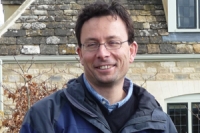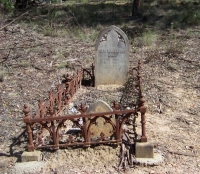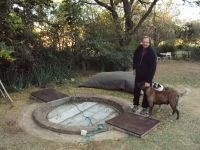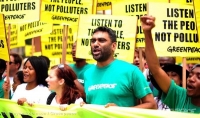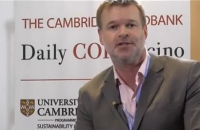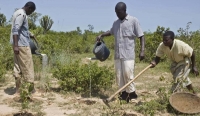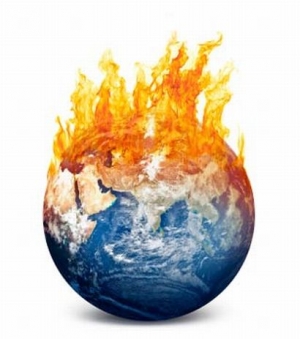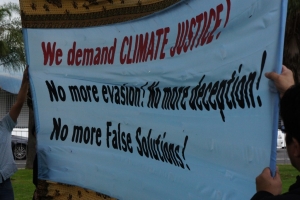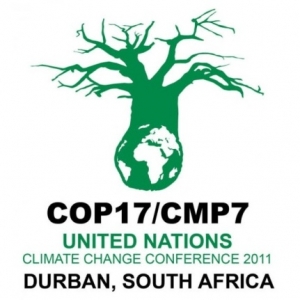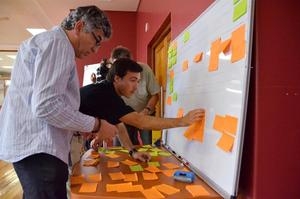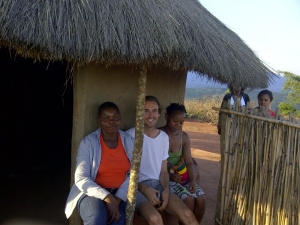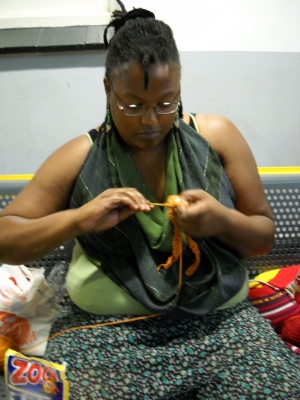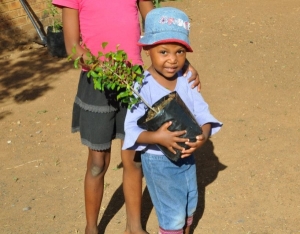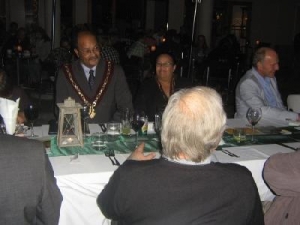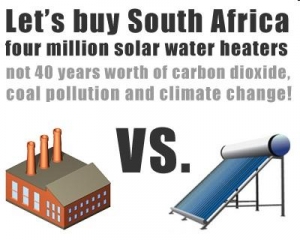We have entered the Anthropocene Epoch, where human influence will leave marks on this planet that may be comparable to an Ice Age. Professor Mark New opened his inaugural lecture as Pro Vice Chancellor for Climate Change and Director of the African Climate and Development initiative at UCT with a grim outline of the picture the research data is sketching.
Death and funerals, topics we generally prefer not to think about, are an inevitable reality for us all. And an important question to ask ourselves is: Would I want to turn a loved one or myself into pollution when they or I pass on?
If I look back on the many moments of challenge and disturbance in my life it’s clear that a critical question at such moments has always been “How much truth am I willing to expose myself to?”
In the pursuit of a greener, healthier lifestyle we are constantly on the lookout for new ways to turn our wasteful lives into a more logical nature-simulating exercise, as Nature is always our best teacher. In nature there is no waste – everything is re-used to benefit some other organism, often as food.
A wolf in sheep’s clothing, we’ll all agree, is a dangerous beast. Yet, here in the UNFCCC wolves are walking among us on a daily basis, some easier to spot than others. Politicians are meant to be the masters of disguise, and some of their disguise attempts, while feeble, are passing muster. This article aims to reveal the wolf’s teeth and claws underlying the sheepish disguise of carbon capture and storage under the clean development mechanism.
Oh behalf of Sustainable Seas Trust I'd like to invite you be a to part of the SEA Pledge Action Day! SEA Pledge is a project of SST that will be launched at COP17 in Durban to promote awareness and investment in marine research and conservation.
COP17: The Cambridge Programme for Sustainability Leadership (CPSL) is running a series of high-level briefings at their Oasis of Fresh Thinking with people who will be commenting on the negotiations as they unfold and giving a business perspective on the leadership challenges for businesses in the sustainability arena.
South African president Jacob Zuma has declared his intention to have a decision on Agriculture at the UN COP17 climate negotiations in Durban; while the World Bank is promoting so-called “Climate Smart Agriculture” and carbon offsets as the future of African agriculture and climate solutions.
South Africa is generally considered the leader on the African continent, but not always for the right reasons. While it is deliberated that SA is Africa’s economic and industrial powerhouse, it has come with a price – South Africa is by far the worst polluter and GHG (greenhouse gas) emitter on the continent.
The United Nations Convention on Climate Change (UNFCCC) 17th Conference of the Parties (COP 17) kicked off in Durban today with one resounding message, “It always seems impossible until it’s done.”
It is up to civil society to prevent a potential “genocide” or “ecocide” being agreed to at the Durban Conference of the Parties (COP17) which starts in Durban this week.
On the 17th of November, Grahamstown, a small town in the Eastern Cape of South Africa, held a roundtable on COP 17, bringing together stakeholders from across the community.
Climate change is fast becoming one of the biggest threats that mankind faces, yet if you walk through the village of Vatsonhga it’s hard to believe any of the scientific predictions.
On its travels through South Africa the Climate Train has been creating unique spaces for community members - notables and ordinary people alike- to engage in meaningful discussions around climate change and the lively Pretoria was certainly no exception.
'She is the frame of the unexpected. A young girl with no rank and no title, just two small hands that carry her entire community. There are no facilities here; there are no green bins that line the streets, just her understanding.'
Stellenbosch celebrated an inaugural Earth Hour outdoor dinner at tables down the middle of streets closed to traffic in the historical centre of town. Church and Andringa steets turned into an earth party as 8 restaurants participated in feeding concerned folk in sync with the biggest global action ever for Earth.
GlobeScan (an international public and stakeholder opinion research firm) and SustainAbility, (a think tank and business strategy consultancy) have recently conducted a survey poll on Water and listed the 19 best solutions to the global freshwater crisis from their findings.
South Africa is warming up three times faster than the rest of the world. While there is currently furious debate about South Africa's energy development path, the country continues to be perceived as one of the world's biggest coal-based economies. Relative to our size, we contribute far more than most countries to climate change.
In 1992, Severn Suzuki, then aged 12, addressed the United Nations Summit in Rio de Jenero and appealed emotively to the adult generation to stop messing up the plant, as she, representing the children her age, was seeing signs that the environment was deteriorating.

